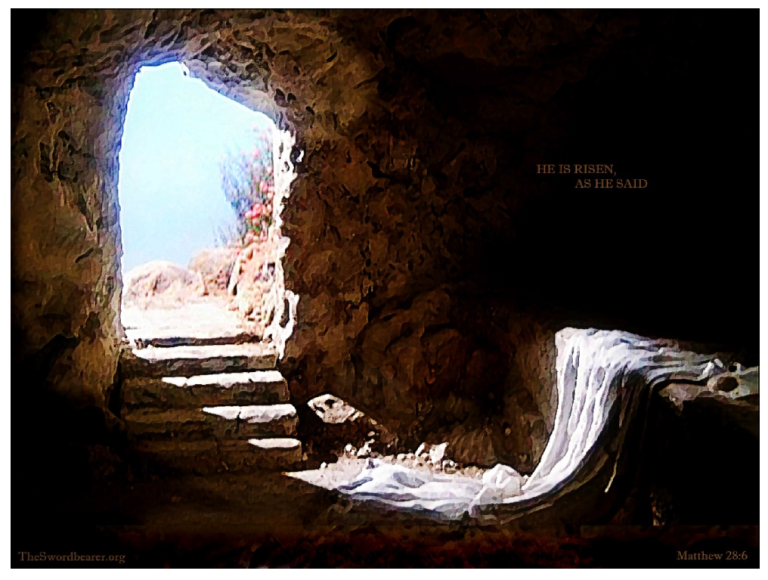In Matthew 1:1, it is written:
‘The book of the generation of Jesus Christ, the son of David, the son of Abraham.’
In the New International Translation, it says: This is the genealogy of Jesus the Messiah, the son of David, the son of Abraham:
Genealogy is ‘a line of descent traced continuously from an ancestor’.
In Matthew 1:16 and 17, the Bible says:
‘And Jacob begat Joseph the husband of Mary, of whom was born Jesus, who is called Christ.
So, all the generations from Abraham to David are fourteen generations; and from David until the carrying away into Babylon are fourteen generations; and from the carrying away into Babylon unto Christ are fourteen generations.’
In Matthew. 3:16-17, the Word declares:
‘And Jesus, when he was baptized, went up straightway out of the water: and, lo, the heavens were opened unto him, and he saw the Spirit of God descending like a dove, and lighting upon him:
And lo a voice from heaven, saying, This is my beloved Son, in whom I am well pleased.’
Also in Matthew 17:5, the Bible says:
‘While he yet spake, behold, a bright cloud overshadowed them: and behold a voice out of the cloud, which said, This is my beloved Son, in whom I am well pleased; hear ye him.’
In Romans I:3- 4, it is written:
‘Concerning his Son Jesus Christ our Lord, which was made of the seed of David according to the flesh;
And declared to be the Son of God with power, according to the spirit of holiness, by the resurrection from the dead.’
These are foundational scriptures that demonstrate the humanity and divinity of Jesus Christ.
In John 10, we saw a dramatic encounter between Jesus and the Jews, and they sought to stone him.
Why? Because he declared himself to be the Son of God.
In John 10:30, the Bible says:
‘I and my Father are one.
Then the Jews took up stones again to stone him.
Jesus answered them, Many good works have I shewed you from my Father; for which of those works do ye stone me?
The Jews answered him, saying, For a good work we stone thee not; but for blasphemy; and because that thou, being a man, makest thyself God.
Jesus answered them, Is it not written in your law, I said, Ye are gods?
If he called them gods, unto whom the word of God came, and the scripture cannot be broken;
Say ye of him, whom the Father hath sanctified, and sent into the world, Thou blasphemest; because I said, I am the Son of God?’
Invariably, what Jesus was saying is this:
Why do you seek to stone me because I said I am the Son of God; and why do you say that I have blasphemed because I say that I am the Son of God?
Did God himself not declare in his Word that you yourselves are ‘gods’?
So, Christ has both a measure of humanity and also a measure of divinity.
Why did God decide that Christ should come into the world as a human?
It is because God wanted to demonstrate that in Christ ‘we have not an high priest which cannot be touched with the feeling of our infirmities; but was in all points tempted like as we are, yet without sin.’ (Hebrews. 4:15)
This means that Jesus, the Son of David, can empathise with our weaknesses.
He is not the type that cannot be touched by our human condition. We can relate to him, and he to us.
That is why in diverse encounters in the Bible, we saw Jesus demonstrate his compassionate nature and his humanity.
In Luke 18:35-42, the blind man appealed to this compassionate nature of Jesus:
‘And it came to pass, that as he was come nigh unto Jericho, a certain blind man sat by the way side begging:
And hearing the multitude pass by, he asked what it meant.
And they told him, that Jesus of Nazareth passeth by.
And he cried, saying, Jesus, thou son of David, have mercy on me.
And they which went before rebuked him, that he should hold his peace: but he cried so much the more, Thou son of David, have mercy on me.
And Jesus stood, and commanded him to be brought unto him: and when he was come near, he asked him,
Saying, What wilt thou that I shall do unto thee? And he said, Lord, that I may receive my sight.
And Jesus said unto him, Receive thy sight: thy faith hath saved thee.’
Also, in Luke 7:11-15, the Bible says:
‘And it came to pass the day after, that he went into a city called Nain; and many of his disciples went with him, and much people.
Now when he came nigh to the gate of the city, behold, there was a dead man carried out, the only son of his mother, and she was a widow: and much people of the city was with her.
And when the Lord saw her, he had compassion on her, and said unto her, Weep not.
And he came and touched the bier: and they that bare him stood still. And he said, Young man, I say unto thee, Arise.
And he that was dead sat up, and began to speak. And he delivered him to his mother.’
And he had compassion on her, saying ‘weep not.’
In Matthew 15:30-32, the Bible says:
‘And great multitudes came unto him, having with them those that were lame, blind, dumb, maimed, and many others, and cast them down at Jesus’ feet; and he healed them:
Insomuch that the multitude wondered, when they saw the dumb to speak, the maimed to be whole, the lame to walk, and the blind to see: and they glorified the God of Israel.
Then Jesus called his disciples unto him, and said, I have compassion on the multitude, because they continue with me now three days, and have nothing to eat: and I will not send them away fasting, lest they faint in the way.’
Jesus demonstrated his humanity by his compassion for the multitudes.
At the tomb of Lazarus, the Bible says in John 11:34, we also see this compassion in full display.
The Bible declares:
‘And said, Where have ye laid him? They said unto him, Lord, come and see.
Jesus wept.
Then said the Jews, Behold how he loved him!’
Jesus, the Son of David, wept at the tomb of Lazarus. Why?
He wept to demonstrate that he also felt the pain of the people around him; he wept to demonstrate compassion, that there is an element of humanity in him.
But Jesus was also to demonstrate his divinity in the same context.
At the tomb of Lazarus, we see an interplay between the humanity of Jesus and his divinity.
Jesus knew that Lazarus would be raised from the dead. And that was exactly what happened.
The ultimate demonstration that Jesus is the Son of God was not when he cast demons out, or when he made the blind to see, or when he healed the sick.
Let’s look at what happened at the time of his crucifixion and death on the cross. Strange things happened, and the centurion was dumbfounded.
In Matthew 27: 50-54, the Bible says:
‘Jesus, when he had cried again with a loud voice, yielded up the ghost.
And, behold, the veil of the temple was rent in twain from the top to the bottom; and the earth did quake, and the rocks rent;
And the graves were opened; and many bodies of the saints which slept arose,
And came out of the graves after his resurrection, and went into the holy city, and appeared unto many.
Now when the centurion, and they that were with him, watching Jesus, saw the earthquake, and those things that were done, they feared greatly, saying, Truly this was the Son of God.’
The centurion did not say: truly, this is the Son of David. He said: ‘truly this is the Son of God.’
The resurrection of Jesus was the ultimate demonstration that Jesus is the Son of God. The instances of the dead being raised to life in the Bible involved the intervention of man. In other words, man prayed for the dead to rise, and God responded.
But when Jesus rose from the dead, no human intervention was needed. It was not needed. The resurrection of Jesus was accomplished by the power and operation of the Holy Ghost.
In Romans 1:4, the Bible says:
‘And declared to be the Son of God with power, according to the spirit of holiness, by the resurrection from the dead.’
Now, what shall we say concerning these things? We must always remember the humanity of Christ, especially when we pray.
When we Christians pray, we often call on his name and remember him as the Son of God. When we need God to demonstrate his awesome power in miracles, signs and wonders we call on Jesus, the Son of God.
But we often forget that he is our high priest who is also touched by the feeling of our infirmities. In Hebrews 4:15, it is written:
‘We have not an high priest which cannot be touched with the feeling of our infirmities; but was in all points tempted like as we are, yet without sin.’
In Luke 18, a certain blind man needed healing, he appealed to the compassionate nature of Jesus. He said in Luke 18:38, ‘Jesus, thou son of David, have mercy on me.’
If, therefore, we are asking for healing, let us not forget to call on the name of Jesus, the Son of David. It is not a sin to call him the Son of David.
The Bible says that Jesus had compassion on the multitudes, and he provided food for them. When we need him to demonstrate his compassionate nature, let us call him Jesus, thou Son of David.
Do you know that God can do signs and wonders when we remind him of his servant, David?
In Is.37:33-36, the Bible says:
‘Therefore thus saith the Lord concerning the king of Assyria, He shall not come into this city, nor shoot an arrow there, nor come before it with shields, nor cast a bank against it.
By the way that he came, by the same shall he return, and shall not come into this city, saith the Lord.
‘For I will defend this city to save it for mine own sake, and for my servant David’s sake.
Then the angel of the Lord went forth, and smote in the camp of the Assyrians a hundred and fourscore and five thousand: and when they arose early in the morning, behold, they were all dead corpses.’
God defended the city not only for the sake of his name, but also for the sake of his servant, David. In that same manner, we can call on the name of the Lord, the Son of David, and he will respond. He is the same yesterday, today, and forever. He has not changed and will never change.
Hallelujah!




